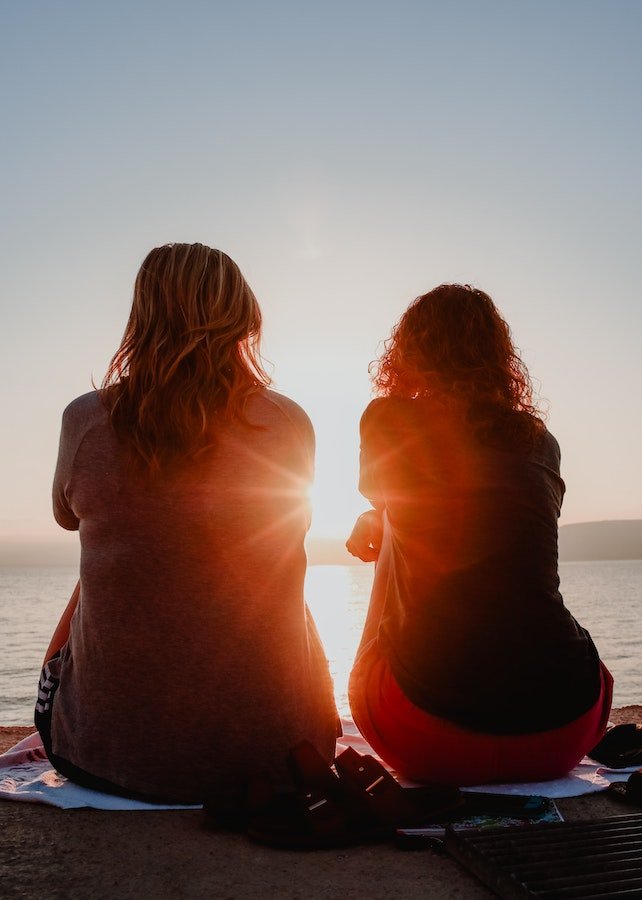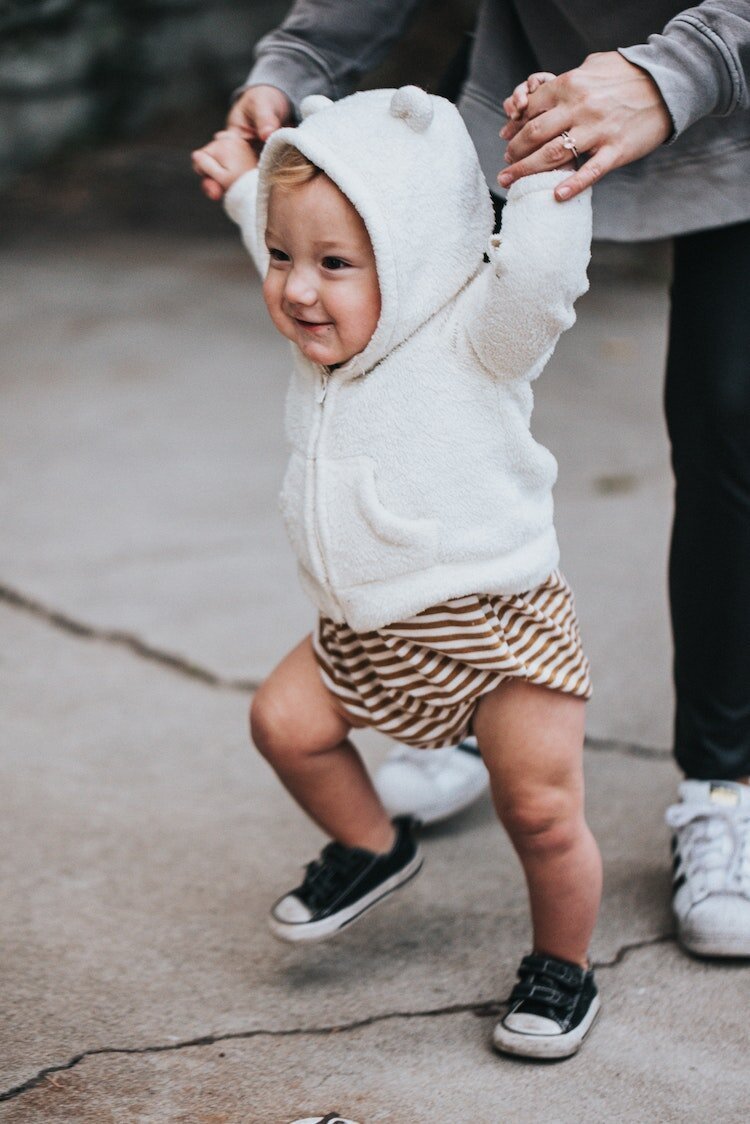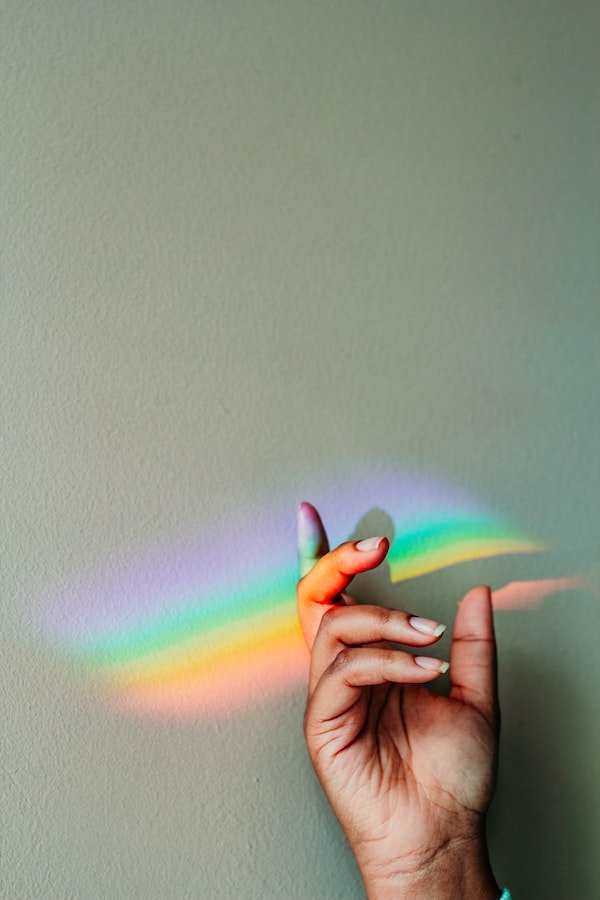
Reader Essay: MY Jenny
This essay was reader-submitted for our Reader Essay Series on themes of motherhood, mental health, and personal transformation.
I’ve never wanted kids of my own. Which is precisely why I found myself exiting a Pasadena fertility clinic with a grab bag containing an informational booklet, an application for financing, and a pen that contained small plastic sperm swimming around in its cap.
I’ll explain.
Within a circle of friends, if you are a person who doesn’t have children, it is helpful to have another person in the group who also doesn’t have children. For me, that person was Jenny.
“At the end of the night, we’d joke with each other, “Don’t get pregnant!” ”
A few of us had a standing happy hour date at a tiny local wine bar. After the babies started being born, it was rare that everyone could make it, but Jenny and I were always there. She was my reliable partner in crime, my spontaneous late-night FaceTime call, and my coffee date any day or time of the week. During happy hour, when everyone else had slipped into mommy talk, we’d huddle together to conspire about our child-free lives, gleeful about ordering one more glass of wine and being able to sleep it off in the morning. At the end of the night, we’d joke with each other, “Don’t get pregnant!”
At 19, before I was able to articulate my anger over my lack of maternal desire, I told people I wanted a hysterectomy. I’d see a new mom breastfeeding a newborn and feel annoyed. Ugh, so plebeian, I’d fume. A mom near tears while struggling to get a stroller, diaper bag, and a screaming toddler up onto the bus made me internally rage. What, like you didn’t realize it was going to be hard?! I would silently yell at them. How could something that difficult be as rewarding as everyone said it was? Fifteen years and multiple therapists later, my internal argument had shifted from why do they want kids? to why don’t I want kids? and I discovered that the only person I was mad at was myself. I felt duped by nature. I was furious that a desire so primal had evaded me.
“I was furious that a desire so primal had evaded me.”
In an attempt to quell my anger, I told myself that I needed to buy some time. I would probably change my mind one day, and when that time came, I didn’t want it to be too late. After a middle-of-the-night panic google, I impulsively signed up to attend an information session on egg freezing at a fertility clinic. I didn’t tell my husband. We had always agreed that we were both in the “not for us” camp when it came to parenting, and I didn’t want to freak him out. But after signing in and taking my seat in the waiting room, I got the jitters. I texted him a photo of the clinic’s branded sperm pen sitting on my lap.
“Guess where I am…” I wrote.
His reply came in halfway through the physician’s presentation. “Let’s talk when you get home.” Followed by, “pls pick up btl of malbec.”
Later that night, after splitting the bottle and watching three or four episodes of Breaking Bad, I told him what I had learned at the info session: it would have been better if I had frozen my eggs about five years ago but that 34-year-old eggs still had a “pretty good” success rate, and that all in all it would cost about $30 thousand. He nodded silently. We sat there quietly for a while, neither one of us needing to say the obvious out loud.
“For many, women without children are viewed as still being children themselves.”
Often, when meeting someone new, especially if they know I’m married (not that marriage should be a prerequisite for parenthood but, hey, the patriarchy lives on), the “Do you have kids?” question comes up fairly quickly. I understand why—it’s an easy segue. I wish I had the courage to leave my initial response of a simple “No” hanging in the ether, but after I say it, I am so often met with a look of such dismay that I feel compelled to offer a qualification. So, I usually add something after the fact like “We’ve decided not to have any.”
And that’s where things get interesting. In many instances, you can tell a lot about a person by how they react to that response: “Good for you” (usually a teenager or smarmy male authority figure); “Are you sure” (usually has one or two children of their own); and the worst—“You’re still young” (usually does not have children of their own yet but really wants them, or is a grandparent). It took me a while to figure out why that innocuous phrase burrows so deeply under my skin, but I’ve come to realize that it’s because, for many, women without children are viewed as still being children themselves. As though it takes motherhood to signal that the threshold between childhood and womanhood has been crossed. Categorizing a woman without a child as “young” presupposes that “mother” is equitable with maturity, regardless of whether the woman desires to be a mother or not.
“A childless woman signals desperation, whereas a childfree woman signals selfishness.”
In their 1999 dialogue for Feminist Studies, scholars Gayle Letherby and Catherine Williams discuss society’s preconception that a childless woman signals desperation, whereas a childfree woman signals selfishness; and while I am technically childless (having zero children), I cannot speak to the experience of wanting to have a child and being unable to do so.
What I can attest to is the not-so-subtle societal implication that a woman who can have children but chooses not to indulge in her biology has selfishly slighted the world by withholding offspring. The infantilization of women without children only bolsters the perception of selfishness. I have been asked, “Don’t you want to share the gift of a child with your spouse/parents/siblings?” as if I am a second-grader being asked to share a cookie: “Sharing is caring Melanie! Everyone would like a cookie.”
One afternoon, in the middle of one of our favorite urban hiking spots, Jenny stopped on the side of the trail—a little more out of breath than usual—and took a long swig from her water bottle.
“Sorry, just a sec’ Mel,” she panted, “Listen… I’m pregnant. I’m actually pretty excited about it.”
As soon as she said it, I felt like my Jenny, my non-maternal kindred, was already slipping away—lost to the realm of breast pumping, and colic, and other stuff I couldn’t relate to. I felt abandoned. I felt angry. I also felt guilty for feeling abandoned and angry. Jenny certainly didn’t owe me a child-free friendship any more than I owed anyone a child myself, and who was I to assume our friendship would change because she had a kid? But still, I found myself stewing with anxiety about having been left to fend for myself in our friend group—contributing to the conversation with stories about my nieces and nephews and (God help me) my dog.
“Perhaps this is why childless women are monikered as spinsters, and childfree women are assigned the role of harlot.”
Nancy Chodorow has written extensively about “role-training theory,” positing that women are socialized to become mothers as part of a patriarchal heteronormative society that conflates motherhood and femininity. Perhaps this is why childless women are monikered as spinsters, and childfree women are assigned the role of harlot. Either way, the woman without child is void of the unambiguous feminine that comes with the sanctity of motherhood.
Feminist and queer theories have pushed back against this by arguing that social construction of “mother” and “motherhood” is tied up in biases towards sex and gender with a predisposition towards honoring straight, cis, family narratives. The othering of anyone outside that narrative creates an exclusionary environment in which only women who have biologically gestated and birthed their own child can truly understand the power of the feminine. That warrants anger, doesn’t it?
“She’s still my Jenny. And we’re still us. And I’m still me. ”
I’ve been thinking about why the news of Jenny’s pregnancy left me so raw. Maybe it’s just that being around her always felt like such a relief—not just because there was no pressure to talk about kids, but because she’s one of those people who has the gift of making you feel like you really matter. Of course, that’s one of the qualities that now makes her an amazing mom. And she’s still my Jenny. And we’re still us. And I’m still me.
Yet still. I know that her journey as a mother is something that I will never fully be able to understand on a deeply connective level. Not the way I would if I were going through motherhood myself. It pains me that we will never know each other in that way. So, I’ve still got work to do. Because, sometimes telling people that I feel fulfilled and happy without children still somehow rings hollow, even though it’s true.
We moved from Los Angeles to Vancouver in 2017. While unpacking, I found the fertility clinic sperm pen buried in a box of office supplies and promptly threw it in the trash. Maybe that’s a start.
Melanie Crist is a recent Art History graduate from the University of British Columbia, and her academic writing has been published in numerous student and university journals. She works primarily in the performing arts and is based in Vancouver, BC, Canada. You can follow along with her child-free-dog-mom journey at @melaniemerkosky on Instagram.




